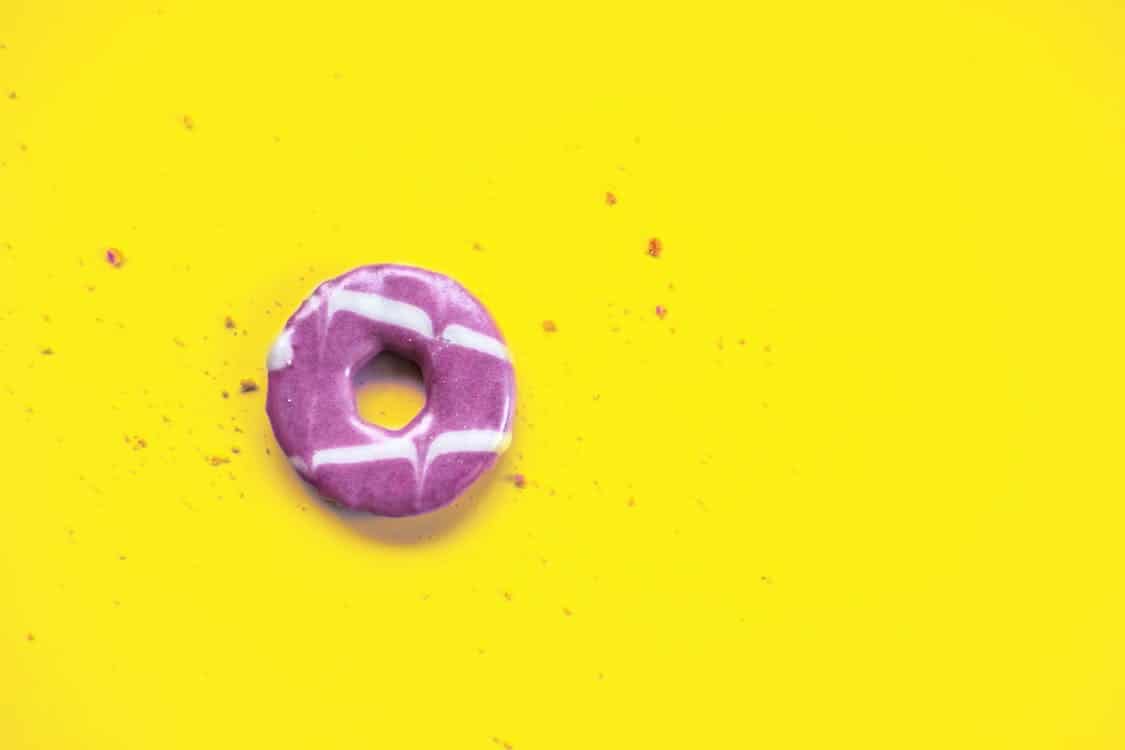I wonder what comes to mind for you when you read the word hypnotherapy?
As a Dietitian and clinical and medical hypnotherapist often, my consults start with addressing people’s questions, concerns and often scepticism around what hypnosis is. Therefore, I feel a great place to kick off todays blog is by quickly clearing up a few of the common misconceptions that surround hypnosis so we can move on to the good stuff.
Hypnotherapy is not a trick nor is it mind control and it is also much more than meditation or relaxation.
Full disclosure: I’ve been one of the sceptics.
Up until a few years ago hypnosis was not only not a part of my life it wasn’t even on my radar. I was a straight down the line evidence and randomised controlled trials (RCTs) all the way, no nonsense biomedical scientist.
I did not believe in the use of personal stories or anecdotal evidence or anything that wasn’t well backed by piles of peer reviewed literature and meta analyses.
In fact, if I’d even heard the word hypnosis, I’d have most likely tuned out (and taken myself into a hypnotic trance ironically enough). Now, I cannot imagine my life without what hypnosis has brought and continues to bring to my world both personally and professionally (well I can, but I’d rather not!)
After 15 years of living with anorexia nervosa, clinical hypnotherapy not just saved my life but gave me a life.
And that’s no longer the most interesting part of my story because I now work daily with others who have fallen out of touch with their inner guidance, who are in positions where all else has failed and they’ve all but resigned themselves to a life of attempting to maintain some form of pseudo physical health while never being entirely mentally well. I now have the daily privilege of facilitating people of all ages and life circumstances from anxious and confused 10 year olds to perfectionist and over achieving 16 year olds, to successful 65 year CEOs and 87 year olds wanting to begin the part of their life where they get to finally be free to be themselves.
Clinical and medical hypnotherapy offer a direct means by which we can bring about change in an area a person has not been able to change through education, willpower, threats, or motivation alone. The profoundness of what this means in terms of someone’s day to day experience of life cannot be undervalued because at the end of the day the information and knowledge is only part of the picture. It is not until we can put this into practice that we can experience the true benefits.
Perhaps the best way I can describe what clinical and medical hypnosis is, is by providing 3 short examples of why hypnosis is a valuable therapy in facilitating someone to bridge the otherwise seemingly monumental gap between recovery to recovered:
#1 It’s Not A Logical Problem

An eating disorder is not a logical problem.
Ask anyone with an eating disorder if they are choosing to feel those feelings or do those behaviours. I can guarantee they’re not. There are strong emotions driving them to not eat, to binge, to over exercise or whatever it is for them.
If the eating disorder was something you could fix through logic, information and understanding you’d have done so.
Clinical hypnotherapy offers a means by which we can re-establishes rapport with the unconscious mind (or in more science-y terms our autonomic nervous system) to restore back to what your body has known how to do all along before the outside world made you question the innate wisdom of your body.
We’ve all had the experience of being children and as children we have no problem connecting to the messages our bodies are sending and we have no problem communicating this. As a baby we don’t think “I’m hungry but I can see mum is tried and busy at the moment, so I’ll just wait”. Nope, we scream and yell until we get that need met!
If we are ever going to be a successful adult, we have to at some point move on to meeting those fundamental human needs for ourselves. If we do not we become disconnected from the signals our body is sending and it stops sending them because after all from the point of view of our body “what is the point of telling her to eat if she’s not going to do it anyway?”.
When we get out of the way our body is free to do what it has evolved to do, steer us towards health naturally and without our micromanagement. You don’t have to think about when and how quickly you want your heart to beat or your lungs to breathe do you? There are things your unconscious knows how to do much better and with much more ease than your conscious mind.
#2 Neural Rewiring

Hypnosis offers a direct means of altering neural networks and neural rewiring.
When it comes down to it this is the crux of recovery.
At some point recovery becomes recovered and recovered is an entirely new way of not just behaving but also crucially of thinking and feeling.
The behaviours of an eating disorder often begin as a coping strategy, a compensation or an attempt to meet a need (to be healthy, good, more confidence or more liked) but with time it turns from conscious choices into unconscious patterns. Hence why it is called a disorder, because the thoughts, feelings and behavers are no longer under the conscious volition of the person.
The eating disorder then persists at an unconscious or habit level because neurons that fire together wire together.
In recovery we are beginning to change the structure and not just function of the mind and there are many ways in which we can do this. Exposure therapy or cognitive behavioural therapy are likely the most well-known but hypnosis often offers a means of doing this more quickly and safely than either of these because it bypasses the need for the involvement of the conscious mind and goes right to where the issue is being maintained, the unconscious mind (that is not our prefrontal cortex but our lower brain areas such as the amygdala).
When I was sick I’d been told by so many therapists and doctors that my brain had changed due to the illness, that I’d been sick so long it most likely wasn’t possible that I could ever fix that damage or recover. What I know now is that the very fact my mind changed to accommodate the illness meant it was more than possible for it to change back and indeed improve and rewire in all the ways it needed to in order to be not just free of the illness but healthier than ever before.
I just needed the means by which to do this and it turned out clinical hypnotherapy offered that.
#3 It Allows It To Feel Good Now

Take a moment to answer this question.
If you could feel great or good about eating would you have a problem eating?
The answer is always a resounding yes which makes us question why is choosing recovery and doing recovery so hard for someone? Because choosing recovery from an eating disorder is choosing chaos.
To everyone else and even to those suffering we know that it is a short-term chaos but until there is proof that it is short term it doesn’t feel like there is an end. It feels like you are choosing indeterminate chaos and pain with no guarantee that it will have been worth it.
Recovery can go on and on and on for many people (I know this was certainly my experience until I did eventually find the help that could help) and a lot of this has to do with the fact that it never feels good. If there are no wins we tend to lose heart, back down and find ourselves back in old behaviours.
How motivated, inspired and excited are you to jump into shark infested water just because someone tells you the island on the other side is incredible? Not much I imagine and that’s what it feels like for someone with an eating disorder. Eating feels unsafe, and we are asking them to do it 6 times a day as though it is nothing. Therefore, the way to truly help someone is not by focusing on all that is wrong but by increasingly allowing them to experience wins that teach them recovery is worth it.
Hypnosis offers a means by which we can help people explore in a relaxed and calm state circumstances and situations which in their everyday eating disorder state of consciousness produce a great deal of anxiety and panic. This teaches their nervous system that they can get though these things safely and that the panic feeling is unnecessary in that situation.
This carries through into regular life for the fact that our minds produce exactly the same response whether we are in a dangerous situation in real life or whether we imagine being in a dangerous situation on the inside of our minds (you can take a moment to imagine biting into a juicy lemon to get a sense of what I mean here, if you really imagine you will find yourself salivating and maybe making a scrunched up face).
Take Home Message

We don’t know all there is to know about the intricacies of eating disorders, but we know enough to know that education, shame and blame do not heal.
We know that eating disorders are on the increase and even our gold standard treatments are in many cases failing those seeking to recover.
If you’ve tried one path and it hasn’t worked, it may be time to expand and experiment with other options. That path may or may not be hypnosis but the main thing to takeaway is that clinical hypnotherapy is there as an option. It’s a viable tool which I believe is only going to become more widely used as we improve our understanding of human minds and what truly drives our behaviours.
I could never capture in words just how thankful I am that my mum looked outside the box of what we’d been offered for years and years and booked me into that first hypnotherapy session.
Kids are great hypnotic subjects because they virtually put themselves into trance, so fantastic are their imaginations! They go far and get a lot done when they get to be the creators of their destiny. I truly believe that building rapport with our unconscious mind is one of the greatest determining factors in how far we go in life and to re-establish this at a young age if it has been lost or is teetering on the verge of being swamped from ever increasing messages from the outside world over what to eat, how to look, think, feel, do and how to breathe, is inconceivably valuable.
Clinical hypnotherapy with a licensed professional offers a safe and controlled environment in which your child or yourself can try out new ways of being, something we often don’t otherwise get in the day to day rush of life.
Eating disorders are complex but please do not let complexity lead to undertreatment.
With my whole heart I hope you found this information useful and inspiring.

Become Great. Live Great.
Bonnie.



